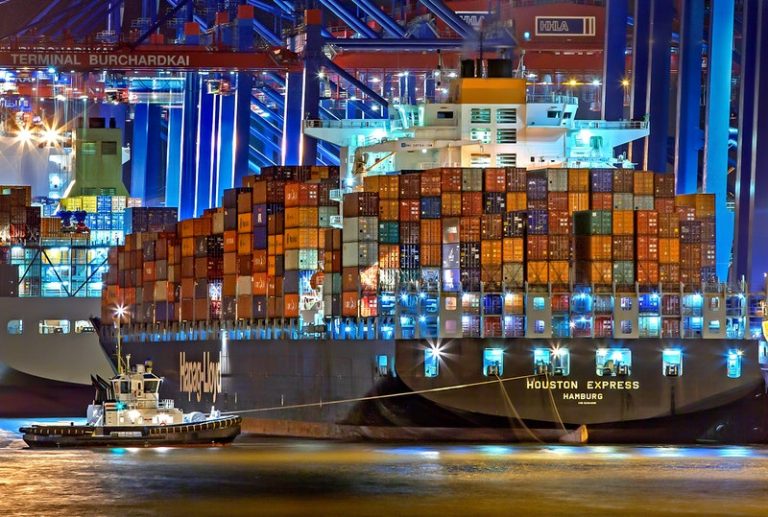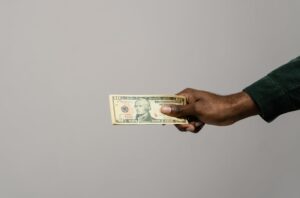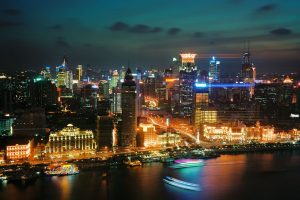On Dec. 23, 2021, global human rights advocates got an early Christmas gift when President Joe Biden signed the Uyghur Forced Labor Prevention Act into law. The bipartisan bill, which was introduced by Sen. Marco Rubio (R-Fla.) and Rep. Jim McGovern (D-Mass.) and approved by overwhelming majorities in both houses of Congress, addresses widespread concerns about goods made in the Xinjiang region of China.
Many companies that could be impacted by this law are household names in the U.S. and western world. A 2018 report by ChinaFile named Apple, Nike, Amazon, General Motors, Coca-Cola and Heinz among other name brands as companies that do business in Xinjiang. Given its potential wide-reaching impact, it is likely that the Uyghur Forced Labor Prevention Act will affect several areas of coverage for business journalists regarding these companies and many others.
Accusations and punishment
According to the U.S. State Department, the People’s Republic of China has carried out a campaign of internment, forced labor and genocide against several ethnic and religious minorities in Xinjiang, including Muslim Uyghurs. Those allegations, which are echoed by several other countries and prominent human rights groups, cast a shadow over the Beijing-hosted 2022 Winter Olympics, of which the Biden administration is staging a diplomatic boycott alongside the U.K., Canada, New Zealand and other democracies.
“In Xinjiang, the government is the trafficker,” the State Department said in a July 1, 2021 release. “Authorities use threats of physical violence, forcible drug intake, physical and sexual abuse, and torture to force detainees to work in adjacent or off-site factories or worksites producing garments, footwear, carpets, yarn, food products, holiday decorations, building materials, extractives, materials for solar power equipment and other renewable energy components, consumer electronics, bedding, hair products, cleaning supplies, personal protective equipment, face masks, chemicals, pharmaceuticals, and other goods—and these goods are finding their way into businesses and homes around the world.”
The Uyghur Forced Labor Prevention Act goes beyond condemnation of forced labor practices in the region. It gives U.S. Customs and Border Protection (CBP) the right to seize any goods made in Xinjiang and force companies to prove that forced labor was not involved in the manufacturing of those goods–effectively amounting to an import ban. After Biden signed the act into law, international law firm Sidley Austin, LLP quickly labeled it a “game changer” that will dramatically affect how companies conduct business in Xinjiang, which has become a global supply chain hub where several international corporations conduct business.
“Companies should prepare for aggressive enforcement,” Sidley Austin posted on its blog on Dec. 28. “This legislation comes on the heels of 11 withhold release orders (WROs) issued by CBP over the past two years on products from (Xinjiang)… Since July 30, 2021, CBP has detained more than 1,100 shipments pursuant to existing WROs, which is more shipments than it detained during all of 2017 through 2020. Also, companies affected by existing WROs should note that the Act does not limit the application of those preexisting WROs.”
A withhold release order essentially allows Customs and Border Protection to seize goods at U.S. ports of entry and refuse to release them until the companies responsible for importing those goods prove to the U.S. government that forced labor was not used in their manufacturing. According to the Customs and Border Protection website, there are currently 35 active withhold release orders pertaining to imports from specific suppliers in China, nearly half of which have been issued since 2016.
The process of freezing those shipments can often take months, providing logistical headaches for importers. WROs concerning the use of forced labor in Xinjiang have been issued in recent years by both the Trump and Biden administrations, but the Uyghur Forced Labor Prevention Act will have a much broader impact as it covers virtually all goods manufactured in the Xinjiang region.
Opposition and concerns
A study by the Australian Strategic Policy Institute published in March 2020 detailed many of the alleged atrocities against Xinjiang’s Uyghur population and accused Apple and Nike of directly profiting off forced labor in the manufacturing of some of their most commonly used products such as shoes, t-shirts, AirPods and iPhone cameras.
Apple and Nike were also reportedly two of the most high-profile opponents of the Uyghur Forced Labor Prevention Act before its passage, as they claimed that it would have a detrimental impact on their supply chains, according to the Washington Post and New York Times. Spokespeople from both companies issued public comments to those papers condemning the general practice of forced labor in manufacturing (with no specific mention of Xinjiang) but defending their stances. Apple said that its issue with the legislation was purely about the logistics of its enforcement, while Nike denied ever actually opposing the bill. Both corporations maintained that their self-audits of their own supply chains had turned up no evidence of forced labor.
Apple’s and Nike’s lobbying still caught the ire of human rights activists in the U.S.
“What Apple would like is we all just sit and talk and not have any real consequences,” Cathy Feingold, director of the international department for the AFL-CIO, told the Washington Post in 2020. “They’re shocked because it’s the first time where there could be some actual effective enforceability.”
However, some global trade experts expressed concerns in a Politico report that the aggressive enforcement could have a detrimental effect on companies’ ability to import widely used goods into the U.S. while doing very little to actually alleviate the conditions of those imprisoned and forced to manufacture those goods against their will.
“If all of [U.S.] business withdraws from Xinjiang, Uyghurs that are currently being exploited there are going to be driven into poverty … there’s going to be a potential humanitarian crisis,” lawyer and former anti-trafficking diplomat John Cotton Richmond told Politico.
Enforcement issues
There are also the questions of what exactly enforcement will look like on the U.S. side and how exactly companies will be able to prove that no forced labor was used in their products. For the former, the U.S. government’s Forced Labor Enforcement task force has until mid-June to come up with an enforcement plan in conjunction with other government agencies and industry lobbying groups and present that plan to Congress.
That buys companies time (and input) to figure out how they will comply with these regulations, but multiple experts told Politico that the burden of proof placed on companies that their goods are manufactured without forced labor could be impossible to meet because some industries do not closely track their supply chains. Making matters worse, independent audits are impossible to conduct in Xinjiang due to a variety of interference and intimidation tactics from the Chinese government, according to a January report from The Dispatch.
Additionally, China has signaled open hostility to the act, which according to estimates from the law firm Paul Hastings LLP could wipe out $64 million in imports directly from Xinjiang and as much as $119 billion in imports from China as a whole.
“By cooking up lies and making troubles on such issues, some US politicians are seeking to contain China and hold back China’s development through political manipulation and economic bullying in the name of ‘human rights,’” Chinese Foreign Ministry official Zhao Lijian said in a Dec. 15 press conference. “Their vile scheme will never succeed, and will only further damage the credibility and image of the US government and Congress in China.”
Those simmering tensions between China and the U.S., exacerbated by the Uyghur Forced Labor Protection Act–along with the business ties to China among several major American brands–will be put into sharp relief as the world turns its eyes to Beijing for the Olympics. Regardless, the relationship between these two superpowers, and the way that businesses navigate it, is destined for a major sea change thanks to this new law.











